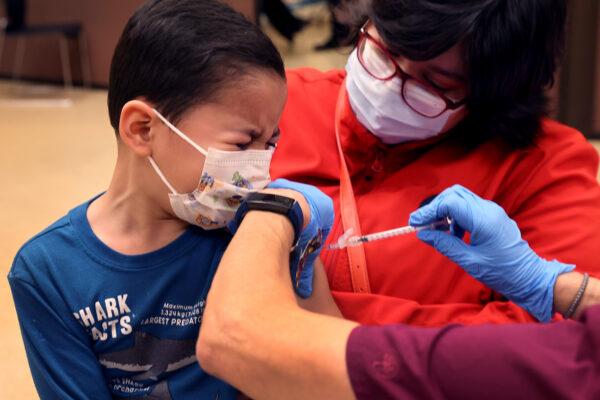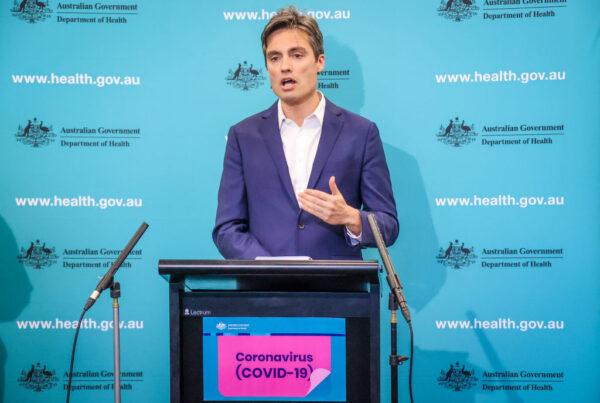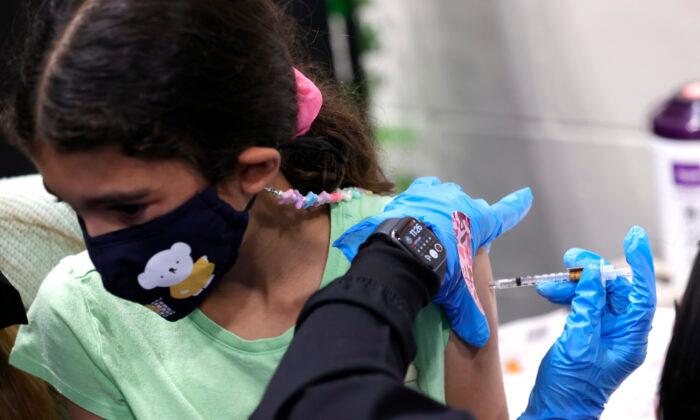Australian health authorities have approved the Pfizer COVID-19 vaccine for all children aged 5 to 11, with the rollout of the vaccine to begin in January.
The news of the approval comes after the Therapeutic Goods Administration (TGA) gave the green light to the new formulation of the Pfizer COVID-19 vaccine, also known as Comirnaty, in Australia on Dec. 5.
The children’s version of the Pfizer vaccine will also only be one-third of the standard dose.
ATAGI said that its recommendation takes into account the direct benefits of vaccination for children in preventing illness as well as the indirect benefits of vaccination for the child, their family, and the broader community.
ATAGI also noted that to “realise some of these benefits, a large proportion of the 5-11 year age group would need to be vaccinated.”

“ATAGI notes that real-world evidence on the safety of this vaccine in children aged 5-11 years is rapidly accumulating overseas, including data on the low rate of rare adverse events following immunisation, notably myocarditis, which the clinical trial was insufficiently powered to assess,” ATAGI said in a statement.
Children are aged 5 to 11 who have previously had SARS-CoV-2 infection can also receive the paediatric Pfizer COVID-19 vaccine. This is recommended following recovery from their illness, or vaccination can be deferred for up to six months. This includes children with a past history of PIMS-TS, also known as long COVID.
Prime Minister Scott Morrison has said that the approval would provide Australian parents with peace of mind around vaccines and the pandemic.
“They can have peace of mind knowing this has the tick from the best medical regulators in the world,” he said.
The approval for the Pfizer vaccine for children is based on the results of a recent clinical trial that the TGA said demonstrated the Pfizer vaccine was highly effective and that most side effects are mild and transient.

Nick Coatsworth, Australia’s former deputy chief health officer, stated that he did not think Aussie kids needed the vaccine, given the predominance of mild symptoms experienced by the age group when they contract the novel coronavirus.
Coatsworth, who was the face of Australia’s vaccination rollout, has been active in promoting COVID-19 vaccines overall, stressed caution when it comes to vaccinating younger children.
“Whilst I encourage parents to vaccinate their 12-15-year-old children, the risk of myocarditis especially in young boys is sufficient that parents have every right to wait for more data or to decline vaccination,” he said.
“In doing so, the child must not then be subject to differential public health treatment which is effectively ’mandating' by regulation.”





Friends Read Free